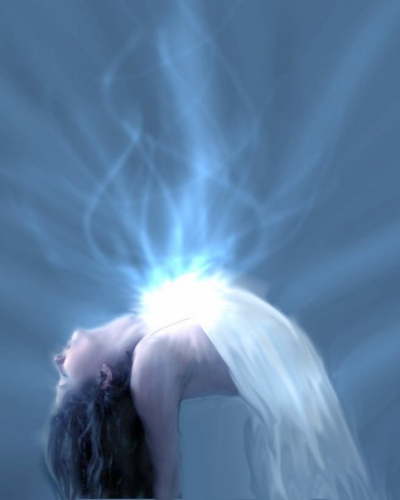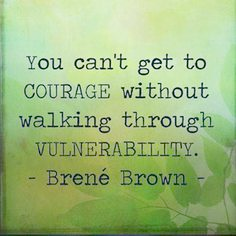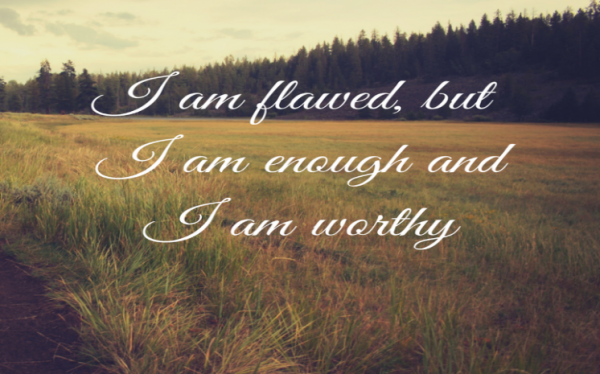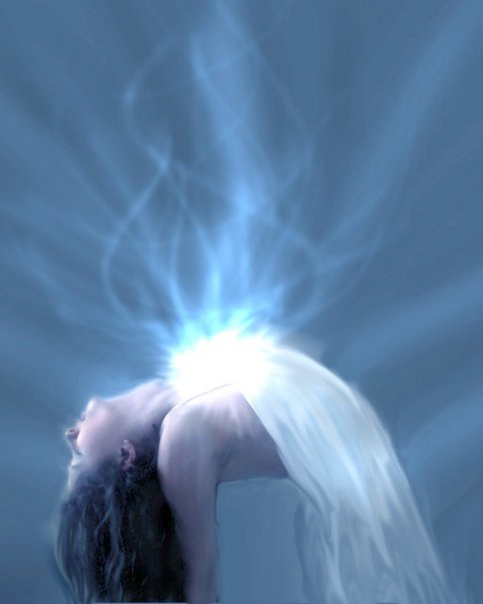Self-Liberation: The Freedom of Embracing Vulnerability
Be the change you wish to see in the world. We are told that this is to be our ultimate aim. But what does it mean? And how do we even begin to do it?
We may realize that our own personal evolution is the key to bringing about a greater shift in consciousness on this planet. After all, our entire social world is simply the result of the collective belief systems that underlie and drive human behavior. If we recognize that the world is merely a reflection of the minds and hearts of the billions of human beings who inhabit it, we realize that each of us is first and foremost responsible for transforming the one thing that is solely under our influence and control: ourselves.
It all starts with liberating ourselves.
As Above, So Below. As Within, So Without.

So what kind of change do we wish to see in the world? For most of us, the dream is a society free from the tyranny of power structures that dominate our lives and stifle our potential. It is a world in which we are free to pursue our dreams, realize our goals, and unleash the extraordinary engines of human creativity and innovation in order to achieve our greatest destiny. Many of us begin a journey of looking on the outside, lamenting large-scale injustice and oppression, assigning blame for all of the darkness plaguing humanity. Once we’ve “seen the light,” we feel a burning urge to speak our truth…to expose the systems we have found to be the root cause of human suffering. We may spend a great deal of energy working to convince people that they are being manipulated and controlled by outside forces. And this is a wonderful thing. In many cases, we succeed. We lead people to understand the harm that comes from corrupt establishments we are operating under. We attempt to open minds and hearts to the ideals of true liberty and peace.
But how can we really convince others that they should be free, sovereign beings, if the majority of people have been so imprisoned by their own fears, insecurities, and self-imposed limitations? How do we tell people that they are not powerless, if, at their core, they feel inadequate and insignificant? We know that power systems control us by way of fear…making the masses feel small, disempowered, dependent, and insignificant. How desirable or achievable is external freedom if we have not attained internal freedom?
It is not until we embark on a journey of transforming our own self-perception, liberating the parts of us that have been held captive, that we can become truly free and empowered individuals.
“I think most of us realize the urgency of an inward revolution, which alone can bring about a radical transformation of the outer, of society. This is the problem with which I myself and all seriously-intentioned people are occupied. How to bring about a fundamental, a radical transformation in society, is our problem; and this transformation of the outer cannot take place without inner revolution. Since society is always static, any action, any reform which is accomplished without this inward revolution becomes equally static; so there is no hope without this constant inward revolution, because, without it, outer action becomes repetitive, habitual. The action of relationship between you and another, between you and me, is society; and that society becomes static, it has no life-giving quality, so long as there is not this constant inward revolution…”
- J. Krishnamurti, The First and Last Freedom
So what is our purpose? And what must this inner revolution look like? What must we liberate ourselves from in order to transform…to “be the change?”

As Brene Brown, best-selling author and researcher of vulnerability, shame, and empathy, explains, “connection to other human beings is ‘why we are here,’ and it is what provides our lives with meaning and purpose…We are neuro-biologically wired for connection. It is universal.” At our core, we have a deep, innate need for love and belonging.
In order for genuine connection to happen, we must make ourselves truly seen. We must be vulnerable.
Tragically, we live in a society with an epidemic of shame. According to Brene Brown, shame is a fear of disconnection, an inner belief system that tells me that, “I am not good enough”. As a result, we numb our emotions, and by numbing vulnerability, we also numb positive emotions and deep life experiences. We become defined by what others think of us, and constantly seek validation outside of ourselves. Our crisis of shame is directly correlated to so many social problems such as depression, addiction, eating disorders, violence, and aggression.
Shame makes us our own biggest critic. It operates by feeding us messages that we are bad, unworthy, and less than. We may receive these programs from our early environments and throughout our life experiences. Our culture tends to program us to suppress our true nature, by making us feel as if we are deficient. We may feel that we are not: smart, beautiful, interesting, clever, charming (etc.) enough. Ultimately, we feel as if we are unlovable.
In order to truly be connected to other human beings, we must embrace vulnerability.
“Vulnerability is the core of shame, fear, and struggle for worthiness. But it is also birthplace for joy, creativity, belonging, and love. Being vulnerable is essential to whole-hearted living”
– Brene Brown
We are conditioned to view vulnerability as a sign of weakness. We think that being vulnerable is something to be feared and resisted. This is particularly true for men, who are taught to bury any sign of vulnerability, or risk be perceived as weak…the ultimate source of shame and self-hatred.
But to be vulnerable is to have the courage to be our true authentic self. It allows us to be seen and heard, take risks, and courageously face failure and criticism. It allows us to expose our raw, naked selves to another person and to bring our creative gifts into the world. We can put ourselves out there, ask for help, and express our deepest feelings. Vulnerability leads us to being genuinely seen, and having the courage to let go of who and what we tell ourselves we “should” be and be who we truly are. This authenticity allows true freedom of self and connection. When we live in this space, we have compassion for ourselves and as a result, we are able to have compassion for others. We are able to go into the arena and “dare greatly.”

“If you’re not in the arena, also getting your ass kicked, I’m not interested in your feedback” –Brene Brown
A lack of self-love underlies the shame that lies inside of us, informing us that we are not good enough. While we need to recognize the areas of ourselves we would like to improve, as we need motivation to drive our personal growth, shame is a destructive force that keeps us locked into stagnancy and self-sabotage. The self-criticisms, harsh judgments, comparisons, and “shoulds,” imprison us in the belief that we cannot live our truth, go after our goals, or become exposed for who we really are. It becomes safer to guard, censor, and protect by keeping ourselves small than to risk the wrath of our critics. Humiliation terrifies us. Not succeeding becomes a fate worse than death.
So how do we cultivate self-love in order to have the courage to be vulnerable…to dare to be great…to liberate ourselves from the shadows lurking in our own soul?
How can we believe that we are capable of fulfilling our purpose and creating a full, meaningful life? It starts with confronting our core beliefs about ourselves.
There are simple tools to help us begin on the path towards healing and empowerment. These tools, if practiced regularly, help us to reprogram our core belief systems and enhance our capacity for self-love.
Take a look in the mirror. Stand in front of a mirror, look deeply into your own eyes, and tell yourself, “I love you.” Say something positive to yourself in the mirror.
This sound may sound a bit silly, but it is an extremely powerful, transformational practice. Most people become very uncomfortable doing this. You may have a difficult time not laughing, or find yourself analyzing all of your detested flaws and imperfections. However, over time, if practiced daily, this mirror work will allow you to sit with yourself, stare into your own soul, and confront all the critical, unloving thoughts and feelings that arise. It allows you to be vulnerable to your harshest critic: yourself. This will bust right through those shame demons.
Meditate. There are several ways you can practice meditation. Cultivating a daily practice will bring you towards a greater sense of inner peace and well-being. Take time everyday to sit quietly, starting with only a few minutes at a time. You can focus on your breathing, observing your inhales and exhales. Allow yourself to sit in a place of stillness, and as thoughts come up, simply observe them and gently allow them to float away. In this space, you can also ask yourself questions such as “What is it I need to know?” “What is making me feel unworthy in life?” or “What makes me lovable?” Pay attention to what is going on inside of you and learn to use your intuition to provide you with guidance. Online guided meditations and classes are also great resources to explore. Meditation is like any practice, you need to practice. It’s an ever-evolving process which takes dedication and commitment.
Affirmations. By repeatedly using positive statements about yourself and your life, you can reprogram the negative thoughts and beliefs that have become so compulsive and habitual. Affirmations should be in the present tense. You can create your own positive affirmations to replace negative ones. By repetitively declaring affirmations, you can shift your negative thinking and transform your perspective. You can write them down and put them up around your house, car, or workplace as loving reminders.
You can find some examples here: http://www.louisehay.com/affirmations/
“In the infinity of life where I am, all is perfect, whole and complete. I now choose calmly and objectively to see my old patterns, and I am willing to make changes. I am teachable. I can learn. I am willing to change. I choose to have fun doing this. I choose to react as though I have found a treasure when I discover something else to release. I see and feel myself changing moment by moment. Thoughts no longer have any power over me. I am the power in the world. I choose to be free. All is well in my world.” – Louise Hay

As we develop a deeper feeling of worthiness, and as we feel open to really connecting with others from a place of love and belonging, we become the “change”. And the ripple effects of our own self-liberation spread far and wide in this world. Other people feel drawn to us and become more interested in our energy and ideas. Our impact becomes greater.
There are seven billion people in this world, and there is only one YOU. Don’t waste your gifts and potential by being too afraid to fully step into the truth and power of your being, Begin your inner revolution right now…in this moment. Devote your life to breaking the chains that prevent you from being your freest, most fulfilled self.
Sources
Brene Brown, “The Power of Vulnerability” https://www.youtube.com/watch?v=iCvmsMzlF7o
Louise Hay, You Can Heal Your Life











Sign up on lukeunfiltered.com or to check out our store on thebestpoliticalshirts.com.